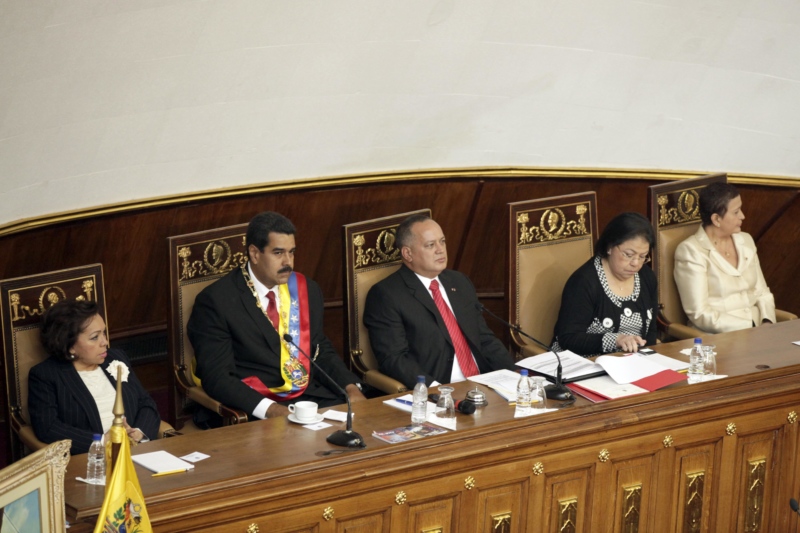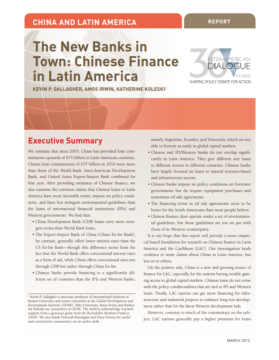Hugo Stay Home
Hugo Chavez, the Venezuelan president, has clearly been enticed by the Libyan drama, where his longtime friend and ally, Muammar al-Qaddafi, is under siege from rebel forces.
This post is also available in: Español
President Trump’s sanctions strategy against Venezuela remains committed but ineffectual, and banning a smallish band of regime loyalists from traveling to the United States will do little to change that. To help restore Venezuela’s democracy, an effective approach must combine unique United States unilateral leverage with renewed multilateral engagement and clearly articulated objectives — including defending democracy through diplomatic pressure, not the use of force — that can achieve the support of the regional and international community.
The official explanation for Venezuela’s inclusion in the Trump administration’s latest travel ban is a lack of cooperation in verifying whether its citizens pose national security or public safety threats to the United States. But it’s hard to escape the conclusion that Venezuela was included in the travel ban to provide legal cover for Mr. Trump’s goal of a “total and complete shutdown” of Muslims entering the United States. The ban may advance a sanctions strategy that is struggling to gain traction against the government of President Nicolás Maduro, but it will do little to protect the United States.
Hugo Chavez, the Venezuelan president, has clearly been enticed by the Libyan drama, where his longtime friend and ally, Muammar al-Qaddafi, is under siege from rebel forces.
Estimates of the volume, composition, and characteristics of Chinese lending to the region since 2005.
Is the Venezuelan government likely to comply with the IACHR’s ruling or will it uphold the ban?
 Cancilleria del Ecuador / Flickr / CC BY-SA 2.0
Cancilleria del Ecuador / Flickr / CC BY-SA 2.0
